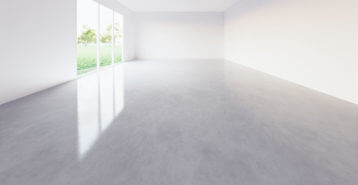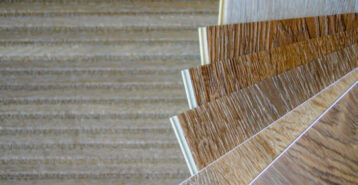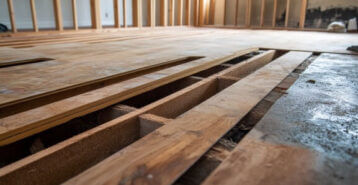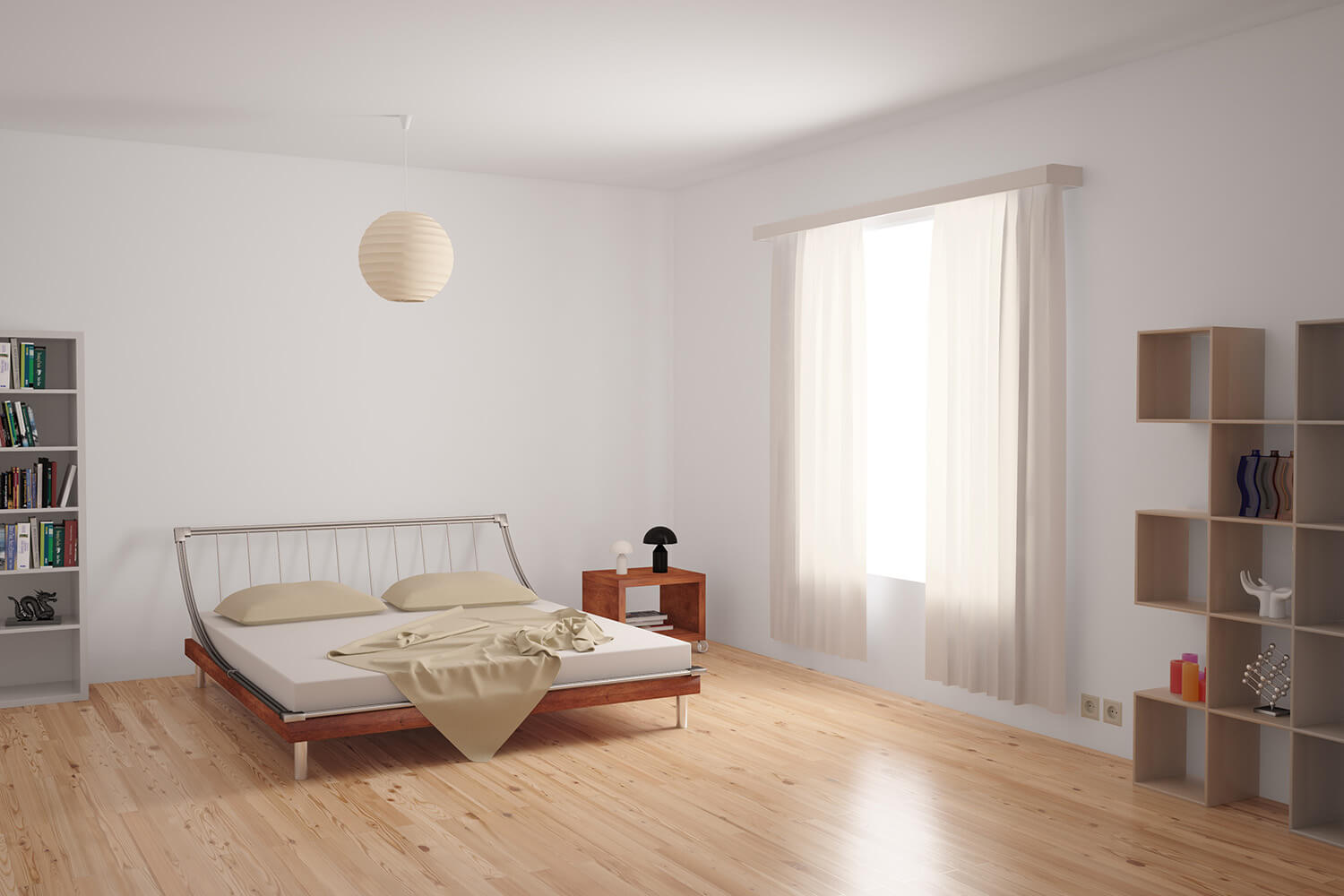How Much Will Your New Floors Cost?
If you are looking to replace the flooring in your home, you may be worried about a costly and time-consuming project. Planning ahead and budgeting smartly for floor installation costs can not only give you the results you always wanted, but help you stay within your budget as well. On this page, we’ll walk you through what to expect in terms of flooring installation costs, how prices differ by flooring type and square footage, and how to reduce costs to stay within your ideal price range.
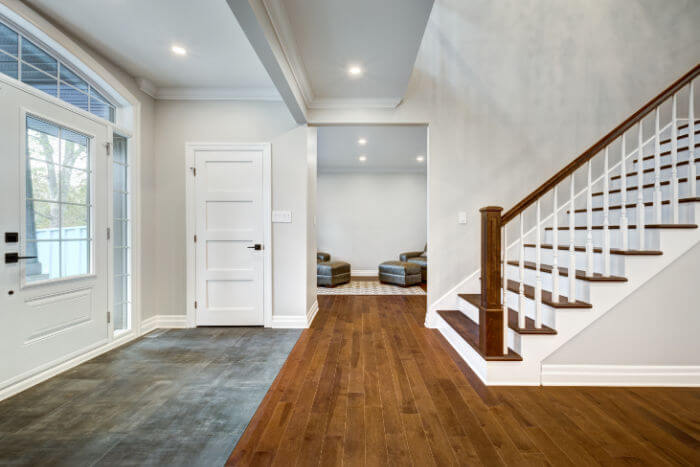
How Much Does Flooring Installation Cost?
As you can imagine, flooring prices can greatly vary depending on your specific needs. Flooring installation can cost anywhere from $2 to $20 per square foot of flooring installed, or $1,000 to $10,000 for 500 square feet of flooring. The national average flooring installation cost is around $7 per square foot or $3,500 per 500 square feet, which includes the cost of both materials and labor.
However, no flooring project is exactly the same and costs can vary dramatically depending on your choices. The factors that will have the biggest impact on total cost will be:
- Type of flooring you choose
- Total surface area you are covering
- How easy or difficult is it to install the flooring
- What kind of subflooring you need, if applicable
As you plan your project, it is important to keep in mind that flooring installation costs involve two key components – the cost of materials and the cost of labor. Below we will cover what to expect for these material costs and labor costs.
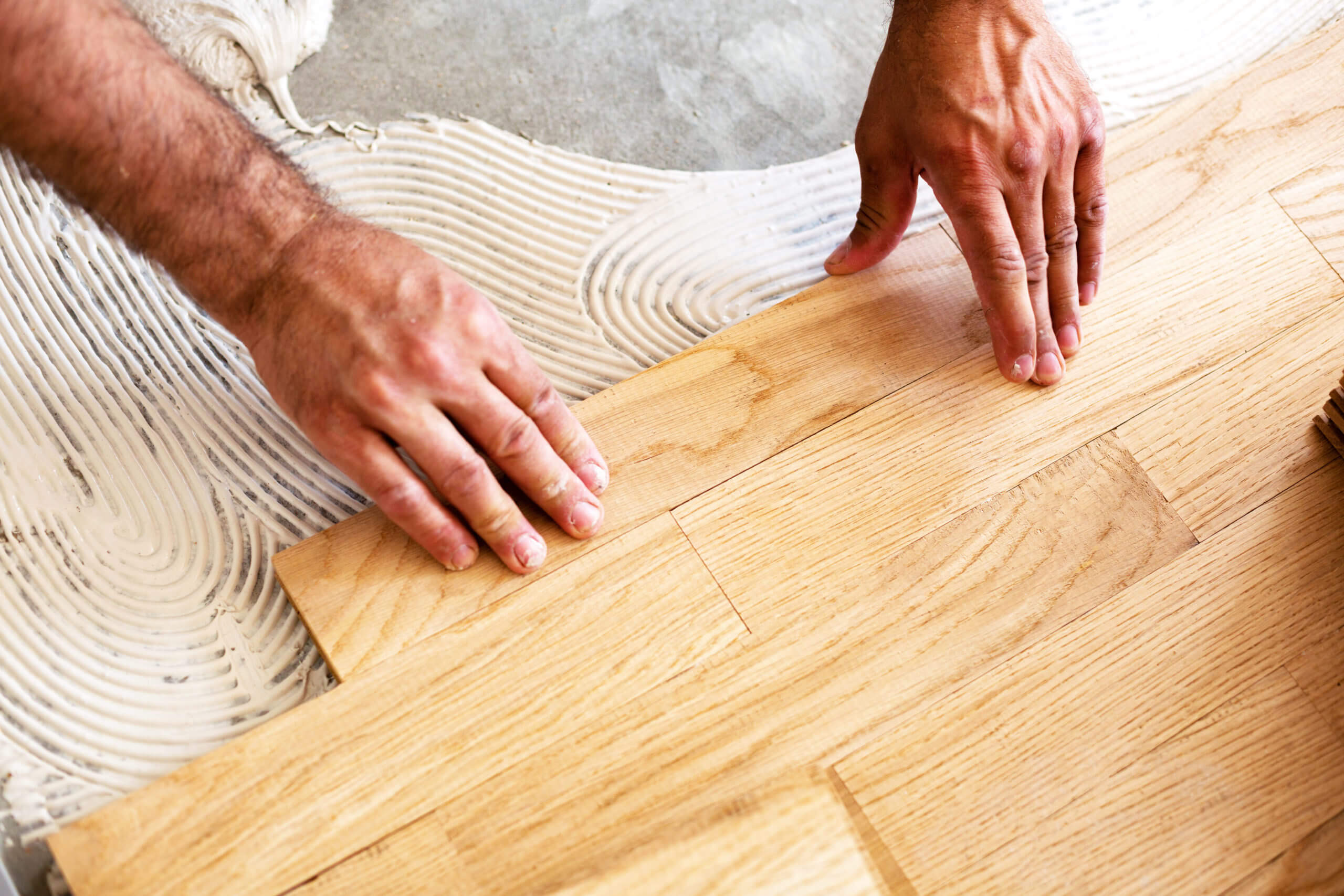
How Much Does Flooring Installation Cost?
Average Installation Cost $1,000 - $10,000
Cost Breakdown
- Materials 75.3%
- Labor 24.7%
Costs by Flooring Type
Flooring types can range from basic, budget-friendly materials such as vinyl or carpet to high-end, luxury materials such as mahogany hardwood. Each material comes with a different price tag. Plus, even for the same materials, prices can vary depending on quality and brand. So the best way to get a reliable estimate for your flooring project is to talk to a local contractor and request a quote.
However, it is good to be prepared with approximate price ranges for flooring types ahead of the call. The chart below outlines flooring installation cost per square foot by type.
| Flooring type | Cost per square foot | Cost per 500 sq. ft. |
|---|---|---|
| Hardwood | $6 - $20 | $3,000 - $10,000 |
| Carpet | $1 - $6 | $500 - $3,000 |
| Tile | $3 - $20 | $1,500 - $10,000 |
| Laminate | $2.70 - $11 | $1,350 - $5,500 |
| Vinyl | $2 - $3 | $1,000 - $1,500 |
| Linoleum | $2 - $6.50 | $1,000 - $3,250 |
| Bamboo | $5 - $15 | $2,500 - $7,500 |
| Cork | $5 - $12 | $2,500 - $6,000 |
| Concrete | $3 - $8 | $1,500 - $4,000 |
| Engineered hardwood | $4 - $16 | $2,000 - $8,000 |
Keep in mind that these prices are for material costs only, meaning that prices will go up when you factor in what it costs to pay the pros to do the work. Labor costs can include demolition and removal of your existing flooring, installing subflooring, and installing the new flooring. The prices above also do not include any finishing you might want for something like your new hardwood floors, but continue reading to find out how much these items will cost on average.
Labor Costs to Install New Floors
On top of materials, the cost of labor for flooring installation can run between $0.60 to $4 per square foot. It will depend on the type of flooring you choose and the difficulty and time it takes to install it. For example, vinyl plank flooring is much easier to install than tile with a custom inlay design. Generally speaking, vinyl, laminate, engineered hardwood and carpet are easier to install, while real hardwood and tile tend to be more difficult and time-consuming.
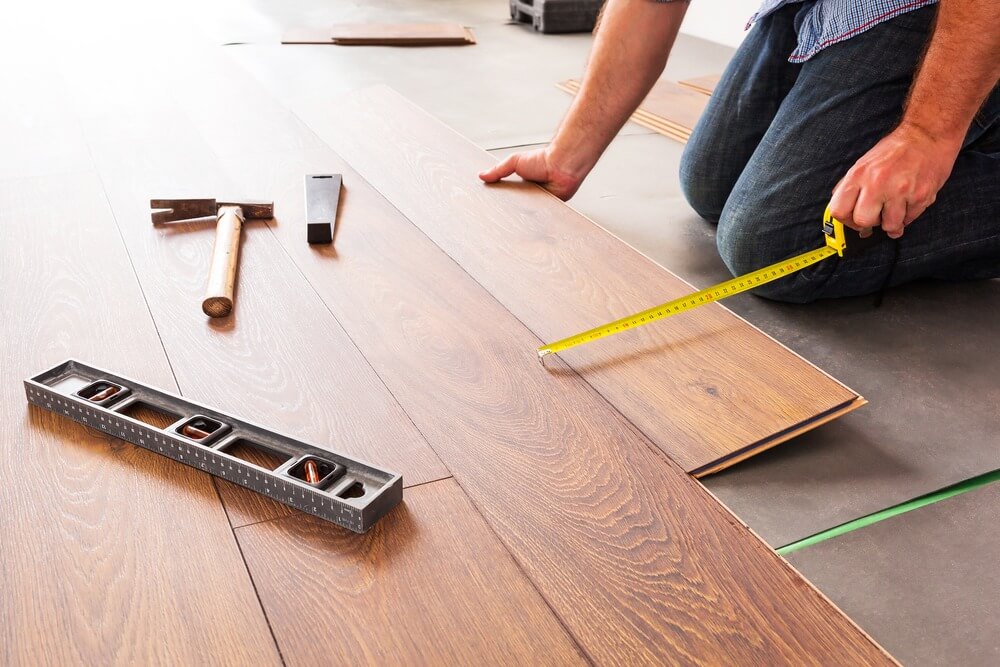
Cost to Remove Existing Flooring
Remember that in addition to installing new flooring, you’ll also have to consider the cost of removing any existing flooring first. This includes removing any baseboards, pulling up the flooring, removing any nails or glue, pulling up of underlayment and disposing of all old materials.
Generally speaking, the cost to remove and dispose of old flooring costs around $1 to $3.50 per square foot. Some contractors might offer it as complimentary. It all depends on the pro you hire, where you live, the type of existing flooring, and the way in which it was installed.
Removing a 12 x 12 area of carpet that has been stapled or nailed down might be a 3 hour job that costs $60 an hour. But if the carpet has been glued down, it will be much more difficult and time consuming, ultimately costing you more. Removing a tile floor can run up to $3.50 per square foot. Overall, removal costs are less expensive than installation costs as it is less time consuming by comparison.
This is especially important if you are looking to remove carpet and preserve the hardwood flooring underneath. In that situation, you won’t be laying new floors but the integrity of the remaining flooring will matter for costs. A pro can also rip out old carpet or vinyl plank efficiently and correctly in a way that avoids damaging your subfloor or slab and makes installation simple.
Subfloors and Underlayment
When we talk about flooring projects, most homeowners are concerned with the aesthetic part of the job: the new flooring itself. But the structural integrity of your home starts with solid subfloors. To protect those subfloors, you need a quality underlayment that prevents mold and moisture from spreading and damaging it.
Note that you only need underlayment for hardwood, linoleum and plank flooring. Carpeting will typically use an underpadding for a softer feeling. Tile floors will typically require cement board on top of the subfloor instead. Therefore, subflooring costs are not part of every flooring installation project.
If applicable, subflooring costs vary based on the type of wood used and whether your joists are structurally sound. Assuming they are, the plywood itself for your subfloor will cost $1.50 to $7 per square foot depending on whether it’s pressure treated and how thick it is. The thicker it is the more your cost will be.
Underlayment is the cheapest part of the job, running about $0.50 per square foot for the most basic option. The installation is also a quick part of the job that will be included in the cost of flooring installation per square foot.
Adding a Finish to Your Floors
In order to preserve your new hardwood floors and get the longest use out of them, you’ll want to opt for a finish that’s durable and protective. Polyurethane is best among those finishes and comes in either oil- or water-based options. Urethane and wax are some other options. There’s also shellac or aluminum oxide. Each has their pros and cons, but in general a finish will cost about $1.50 to $7 per square foot once the floors are installed. The best finishing option depends on the type of hardwood you choose.
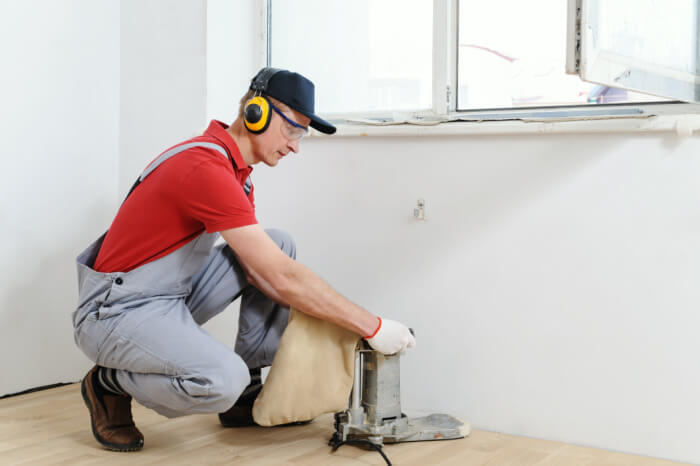
Other types of flooring don’t typically need finish coats, unless you count concrete which is usually polished as a final touch, and that cost is usually included in installation costs.
Less Common Costs
It’s typically during the removal process that you’ll learn whether your subfloors and slab are in good order. You might find you have mold or asbestos to contend with, adding to the cost. Mold remediation runs between $10 and $25 per square foot. Asbestos is much more expensive at $75 to $200 an hour.
Return on Investment
Are you considering reselling your home at some point in the future? The National Association of Realtors reports that new flooring increases home value. Some homeowners recoup 100% or more of the costs they spend on a flooring installation during resale.
If you are replacing flooring for resale value purposes, hardwood flooring will give you the biggest bang for your buck. 54% of home buyers are willing to pay more for a home with new hardwood floors, or over $2,000 extra. Additionally, the National Association of Home Builders found that over 80% of buyers are looking for hardwood in the main living area.
All in all, if you are on the fence about replacing your flooring ahead of a resale, the ROI speaks for itself. It is worthwhile to consider the incremental cost you can add to your listing price thanks to the new floors.
How to Reduce Costs
Luckily, flooring is a home project that comes with plenty of flexibility and opportunities to reduce costs. Below are the top ways you can bring down the total cost of your project.
Research low-cost alternatives
One key strategy for reducing flooring replacement costs is finding low-cost alternatives to high-end flooring types. Today, these are tons of flooring materials that are designed to look like beautiful, luxury hardwood or tile floors. For example, laminate and vinyl are great alternatives to hardwood floors that are much more affordable. Many times, no one will be able to tell the difference!
Refinishing or Repairing
If you’re looking to cut flooring replacement costs, you might consider having your hardwood floors repaired or refinished. This can be much less expensive and time consuming and can bring renewed life to your home. Experts say you can refinish hardwood floors as many as 10 times over their lifetime. So don’t just assume you need new floors before exploring this cost-saving option at just $1.50 to $5 per square foot.
Both refinished floors and new floors will increase the value of your home. Refinished original hardwood floors might even fetch more than new hardwood floors, depending on the type of buyer you have and the value your area places on older, historic homes. But as a rule of thumb, anything new is best for resale. That applies to appliances, flooring, roofs – you name it.
Source materials yourself
If you’re experiencing sticker shock, know that there are some ways to save on costs. You can try sourcing and purchasing flooring yourself if you like a product available at your local hardware store. Keep in mind many contractors get bulk discounts so be sure to compare.
Start with a smaller room
Covering the whole house in new flooring can be quite an expensive project. Remember, the more square footage you are covering, the more expensive the total flooring installation cost will be. If you are in love with hardwood flooring, start with a smaller room in the home and see how it feels over time. Then, you can save up the money or take advantage of financing options to pay for other rooms.
Compare top-rated flooring pros in your area.
Read real homeowner reviews, explore qualifications, and view promotions. Modernize makes it easy to browse professionals and find one that will be perfect for your project.




